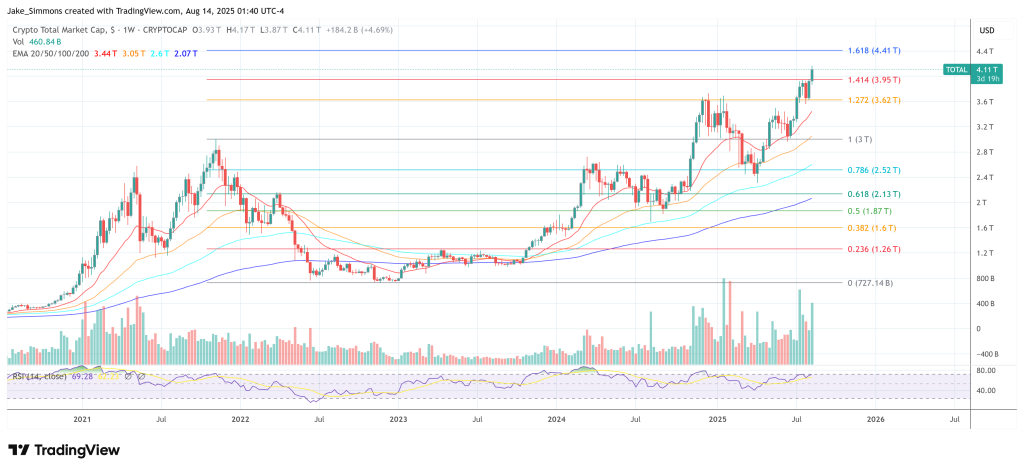A policy whiplash at Google set the crypto industry ablaze on Wednesday before ending in a rare and explicit climbdown: non-custodial wallets are not covered by the Play Store’s new licensing regime.
The clarification, posted by Google’s official communications account on X late August 13, came after lawyers, developers, and high-profile Bitcoiners blasted an earlier interpretation of revised rules that appeared to force Anti-Money-Laundering and Know-Your-Customer checks on self-custody software in the United States and effectively box out indie wallet teams across the European Union.
“Non-custodial wallets are not in scope of Google Play’s Cryptocurrency Exchanges and Software Wallets Policy. We are updating the Help Center to make this clear,” Google wrote.
The initial backlash was swift. VP of Regulatory Affairs at Paradigm Justin Slaughter called it a “surprising move… amid [Google’s] antitrust litigation,” arguing that “pure coding should not require a federal license,” while Jack Dorsey summed up the mood with a one-word verdict: “terrible.”
By nightfall in the US, crypto analyst Pentoshi declared “Breaking news Google has unbanned self custodial wallets,” while Pierre Rochard praised the course correction: “All companies make mistakes, great companies listen to online feedback and course-correct. Google Play can’t afford to ban itself from Bitcoin.”
Google Bow To Crypto Community (Partially)
Under the policy actually taking effect, Google is synchronizing Play Store distribution with licensing in roughly 15 jurisdictions for custodial products—crypto exchanges and custodial “software wallets”—with enforcement to begin on October 29, 2025. In practice that means US developers must operate under a federal or state banking charter or register with FinCEN as a money services business and obtain state money transmitter license; in the EU they must hold authorization as a MiCA crypto-asset service provider.
France and Germany have transitional windows before MiCA fully displaces national licensing. Google’s own policy pages and the updated explainers published Wednesday night underline that non-custodial wallets—apps where users retain their private keys and no third party takes custody—are outside this licensing scope.
The pivot capped a confusing news cycle. Several outlets reported during the day that Google would require licenses for all wallets, custodial and non-custodial alike, before clarifications on X and in follow-up coverage reversed that reading. Google’s statement confirms that self-custody apps are exempt, while noting that the Play Store will still gate custodial apps and exchanges in the US, EU, UK, and other listed markets. The net effect: the compliance burden shifts squarely onto entities that hold user funds, not the open-source code that enables users to hold their own.
Even with Google’s clarification, edge cases remain. Francis Pouliot, CEO of Bull Bitcoin, pressed the company to explain whether the policy captures non-custodial wallets that embed optional gateways to regulated exchanges, with access controls enforced inside the app rather than via Play Store geo-targeting. That unresolved ambiguity matters to builders who have stitched together self-custody with fiat on-ramps through partner integrations, and who must now assess whether those features nudge a wallet into “custodial software wallet” territory for Play’s purposes.
Developers also reported inconsistent enforcement as the policy story evolved. Adam Simecka, founder of the self-custodial Manna Wallet, said the app was de-listed from Play search “with no warning, notice, or recourse,” then later observed that visibility differed across devices and regions: “Some people are able to see it in their Play Store… Out of our family’s 3 Android devices, it is showing on 1.” He added that positive reviews had disappeared alongside search visibility.
For users and developers, the path ahead is clearer but not frictionless. The Help Center’s country-by-country matrix now anchors distribution for custodial apps to local licensure—FinCEN MSB and state money transmission in the US; CASP authorization under MiCA in the EU; FCA registration in the UK; and comparable regimes in Switzerland, the UAE, Japan, South Korea, and others—with France and Germany granted interim national options before their MiCA deadlines.
Google states the blockchain content policy update becomes effective October 29, 2025, with additional Help Center links added to reflect the new requirements. In parallel, Google has reiterated—now on the record—that non-custodial wallets are outside the scope of these licensing checks.
At press time, the total crypto market cap stood at $4.11 trillion.
